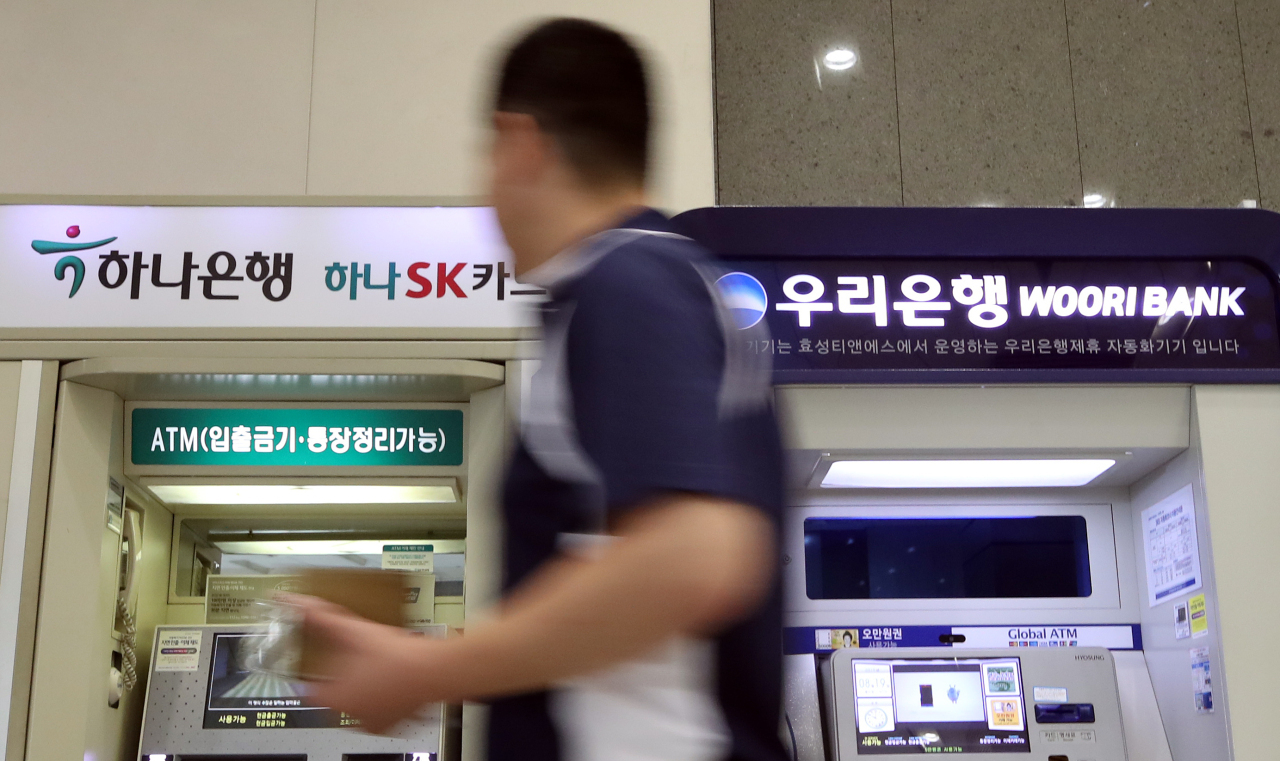How does coronavirus affect individuals’ financial management?
Cash withdrawn from financial accounts on rise for household expenses, investment
By Choi Jae-heePublished : April 13, 2020 - 09:01

Individual subscribers are rapidly losing faith in savings deposits amid ultralow rates and volatile markets, with withdrawals topping 7.7 trillion won ($6.36 billion) in March, nearly a 35 percent increase from each of the previous two months.
According to data compiled by five commercial banks -- KB Kookmin Bank, Shinhan Bank, Woori Bank, Hana Bank and NH Bank -- the combined withdrawals from individuals’ savings and deposit accounts last month reached some 7.7 trillion won from 5.7 trillion won in both January and February.
Meanwhile, cash returned by canceling life and accident insurance products amounted to 3.1 trillion won last month from 2.3 trillion won the previous month.
The increase in cash withdrawals suggests a change in individuals’ strategies of managing their financial portfolios, according to market observers. While some are in need of cash to sustain their businesses and living expenses, others are turning savings into investments.
“I closed several bank accounts to secure seed money to buy stocks,” said Jo Jae-won, 31, an office worker living in the city of Goyang, Gyeonggi Province, who recently invested in local stocks of coronavirus test kit makers.
“Since the central bank slashed interest rates last month, I found it meaningless to pour my money into savings and deposit accounts. I would rather make money in the stock market where I am able to buy blue-chip stocks at a cheaper price these days due to the coronavirus outbreak.”
Jo is among those retail investors in South Korea, often called “ants,” who rush to buy undervalued shares by pulling their money from bank accounts in hopes of equities sharply rebounding after the coronavirus crisis.
The value of all purchases by individuals on the benchmark Kospi surpassed 20 trillion won on April 8, starting an upward trend from Jan. 21 after the first novel coronavirus case was reported here, the Korea Exchange said.
The eagerness in seeking new investment opportunities will remain stronger than for saving money even if the pandemic ends, experts say.
“Even after the coronavirus (pandemic) ends, the number of subscribers to savings or deposit accounts will not rebound dramatically due to remaining economic uncertainties,” said Kim Jung-sik, an economics professor at Yonsei University.
“It takes time for the economy to reach a balance between savings and investment.”
Some finance YouTubers are gaining popularity from individuals seeking new investment opportunities.
As of Friday, subscribers to Korea’s four major finance YouTube channels -- Meritz Asset Management CEO John Lee’s lifestyle stocks, Park Gom-hee TV, Park Ho-doo’s overseas commodity futures and Sosumonkey -- rose by 36,000 on average in a month, according to Social Blade, a YouTube analytics website.
Earlier, financial authorities warned against debt-fueled purchases as well as investing in faltering companies, in response to the high volatility of the stock market owing to retail investors’ explosive stock-buying spree.
“Haste and risky stock investments are likely to exacerbate stock market jitters, so the FSS and related financial institutions should continue to caution retail investors against excessive buying,” said Sung Tae-yoon, a financial economics professor at Yonsei University.
By Choi Jae-hee (cjh@heraldcorp.com)








![[Kim Seong-kon] Democracy and the future of South Korea](http://res.heraldm.com/phpwas/restmb_idxmake.php?idx=644&simg=/content/image/2024/04/16/20240416050802_0.jpg&u=)








![[KH Explains] Hyundai's full hybrid edge to pay off amid slow transition to pure EVs](http://res.heraldm.com/phpwas/restmb_idxmake.php?idx=652&simg=/content/image/2024/04/18/20240418050645_0.jpg&u=20240418181020)

![[Today’s K-pop] Zico drops snippet of collaboration with Jennie](http://res.heraldm.com/phpwas/restmb_idxmake.php?idx=642&simg=/content/image/2024/04/18/20240418050702_0.jpg&u=)